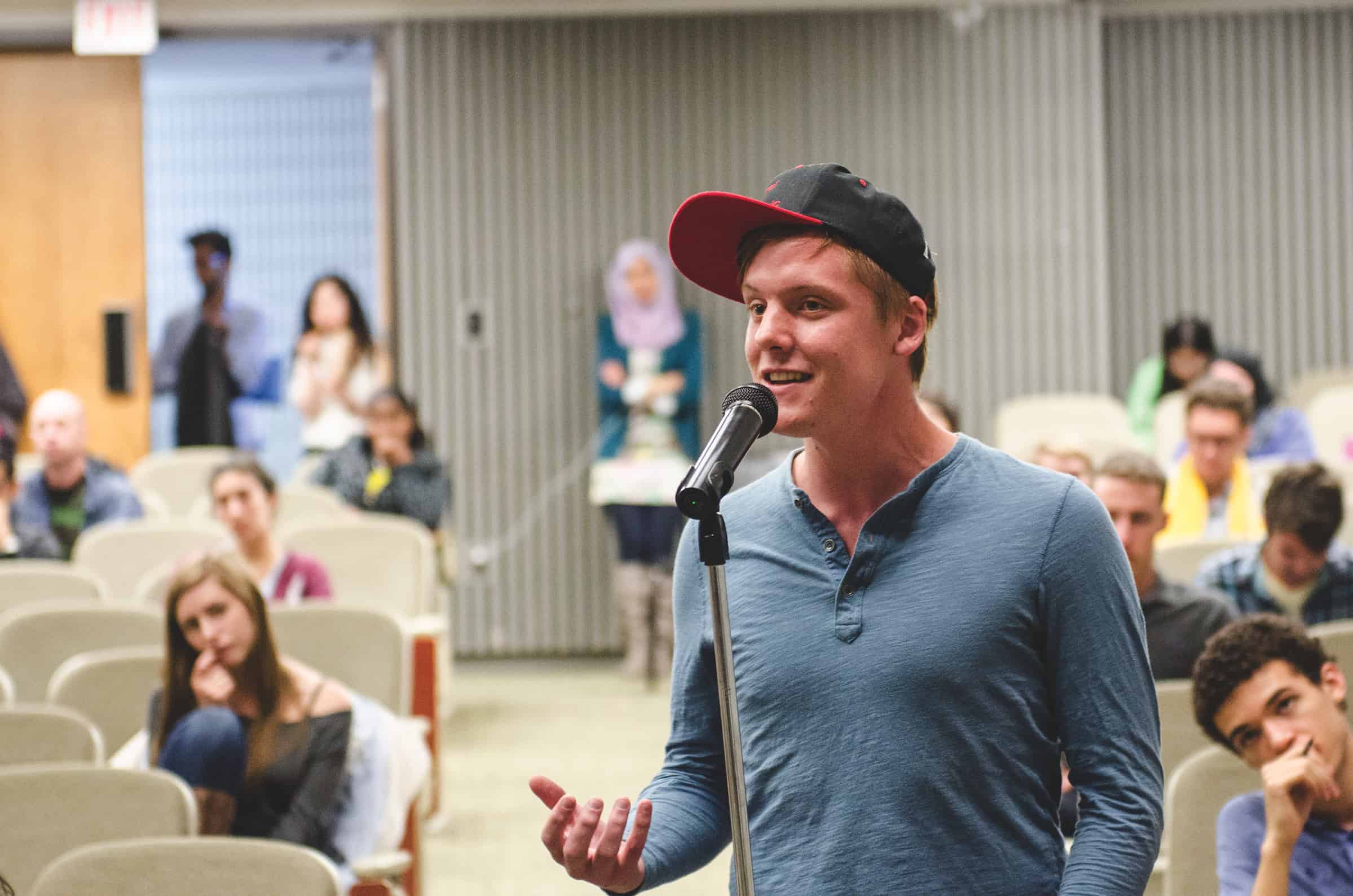On Tuesday September 25, the University of Toronto Students Union held an emergency town hall focused on the discussion paper “Strengthening Ontario’s Centres of Creativity, Innovation, and Knowledge” recently published by the Ministry of Training, Colleges, and Universities. More details about the proposed changes can be viewed online or in the news section of this issue. Students were welcomed to voice their concerns about the proposed changes in an open forum, with a panel consisting of U of T provost Cheryl Misak, professor Scott Prudham of the University of Toronto Faculty Association, and Shaun Shepherd, president of the UTSU also speaking.
[pullquote]The speakers were mostly a parade of enraged academics, thrilled at the opportunity to hear their own voices on a microphone.[/pullquote]
The general tone of students’ responses were as vague and inconclusive as the comments made by the panelists. The speakers were mostly a parade of enraged academics, thrilled at the opportunity to hear their own voices on a microphone. They all pressed the same general concerns about threats to academic freedom, loss of summer income, and a diminished “university experience.”
One student, a disappointed constituent of Glen Murray — the Minister of Training, Colleges, and Universities and the man responsible for the paper — made a poignant comment regarding the inclusion of summer sessions in the proposed three-year honours degree program. She observed that our own graduate programs in Ontario do not recognize summer session credits, meaning that students with the proposed three-year degree could not apply to graduate school in Ontario. This was perhaps the most interesting observation made concerning a major hole in the paper’s logic.
The event was enlivened by the question of another student, who asked why Murray was not present at the town hall. Murray was invited by the UTSU and after his slightly-delayed acceptance, was refused the opportunity to speak by the UTSU as there was “not enough time” for his comments. When the aforementioned student questioned this decision publicly, the moderator, UTSU vice president-university affairs Munib Sajjad, interrupted him, inquiring if the comment was relevant to the paper itself. This was rude and unfair, as it was the only comment that was even remotely interesting or relevant and was silenced in an emotional tone by a moderator who should have been impartial.
Following this, Sajjad ended the student’s time at the microphone and addressed the next speaker, a student praising the UTSU who was permitted to make a comment which was obviously not regarding the paper but about his happiness that the UTSU had organized the town hall.
With Murray present and an impartial moderator, the town hall could have been relevant and productive in addressing a serious threat to quality post-secondary education. Instead, the event was just a room full of academics shouting their disdain at each other over a microphone, without being heard by anyone who could make a true and meaningful difference.


